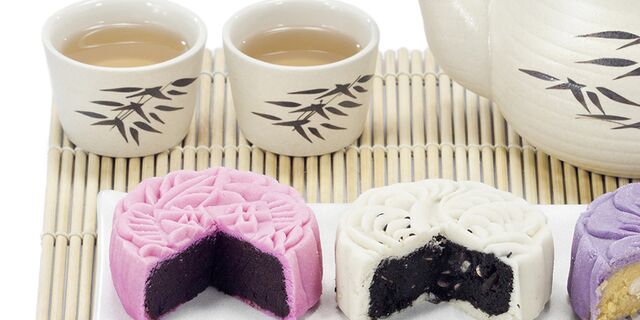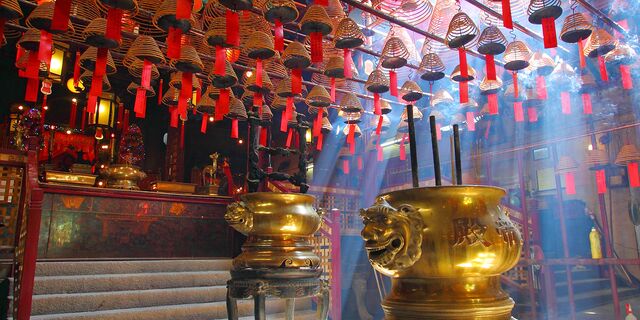Dim sum ‘til you drop
You can see them on menus in all kinds of shapes and flavours, and they are served in steamer baskets or on side plates: delicious dim sum. Originally, these steamed parcels were a favourite breakfast item but nowadays they have become just as popular for lunch. Because each restaurant fills its menu with its own creations, more than 2,000 varieties of dim sum now exist.
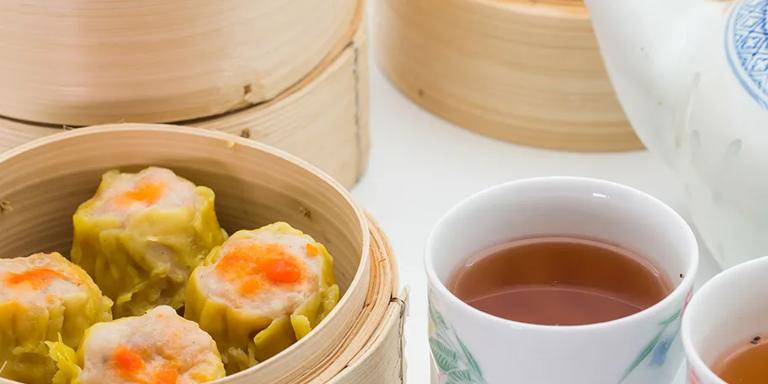
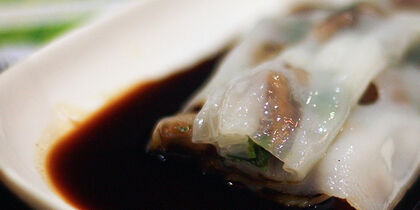
Snacks with a star
Tim Ho Wan is a relatively small restaurant in Mong Kok. The kitchen is run by Pui Gor, a chef who worked for various leading hotels before setting up his own business. In recent years, he has been selling delicious dim sum for next to nothing. His steamed parcels are so prized that his restaurant was awarded a Michelin star in 2009. In the meantime, he has opened a second restaurant and even though there is sometimes a 3-hour queue at the door, prices remain extremely affordable. A steamed snack with caviar, tofu and mushroom costs less than EUR 1.50. And his heavenly signature dish, a steamed dumpling with barbecued pork, doesn’t cost a cent more. Tim Ho Wan is probably the world’s least expensive Michelin-star restaurant. If you don’t want to stand in line, it’s better to make a reservation ─ at Cuisine Cuisine, for example. The dim sum with purple sticky rice, blueberries and chocolate is delightful.
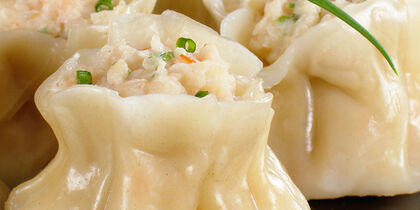
1,001 flavours
The day’s first bamboo baskets are already steaming by sunrise but the snacks remain available until long after lunch. It’s very common to take a brunch with the whole family. In restaurants you see various generations sitting together around circular tables filled with steaming baskets of dim sum; along with a teapot, of course. In some restaurants the waiters ride back and forth with carts full of baskets. Several popular varieties of the Cantonese snacks are available just about everywhere. Some of the best known are the transparent prawn parcel and the dumpling with sweet barbecued pork.Shao mai is another traditional variety: a paste made from minced pork, sliced prawn, mushrooms, spring onion and ginger, wrapped in a thin pastry parcel. All 3 of these snacks have become popular due to the method of preparation. Cantonese people don’t like greasy food in the morning, so instead they choose to steam the food. Traditions can change, however, and deep-fried dim sum has also become very popular. They even give wine suggestions in some restaurants. Champagne is a good accompaniment.
*The displayed prices are for one adult. All amounts are in IDR. Taxes and surcharges are included. No booking fee is applicable. Prices shown may vary depending on fare availability.
The weather forecast information is provided by World Weather Online. Air France-KLM is not responsible for the reliability of this data.





